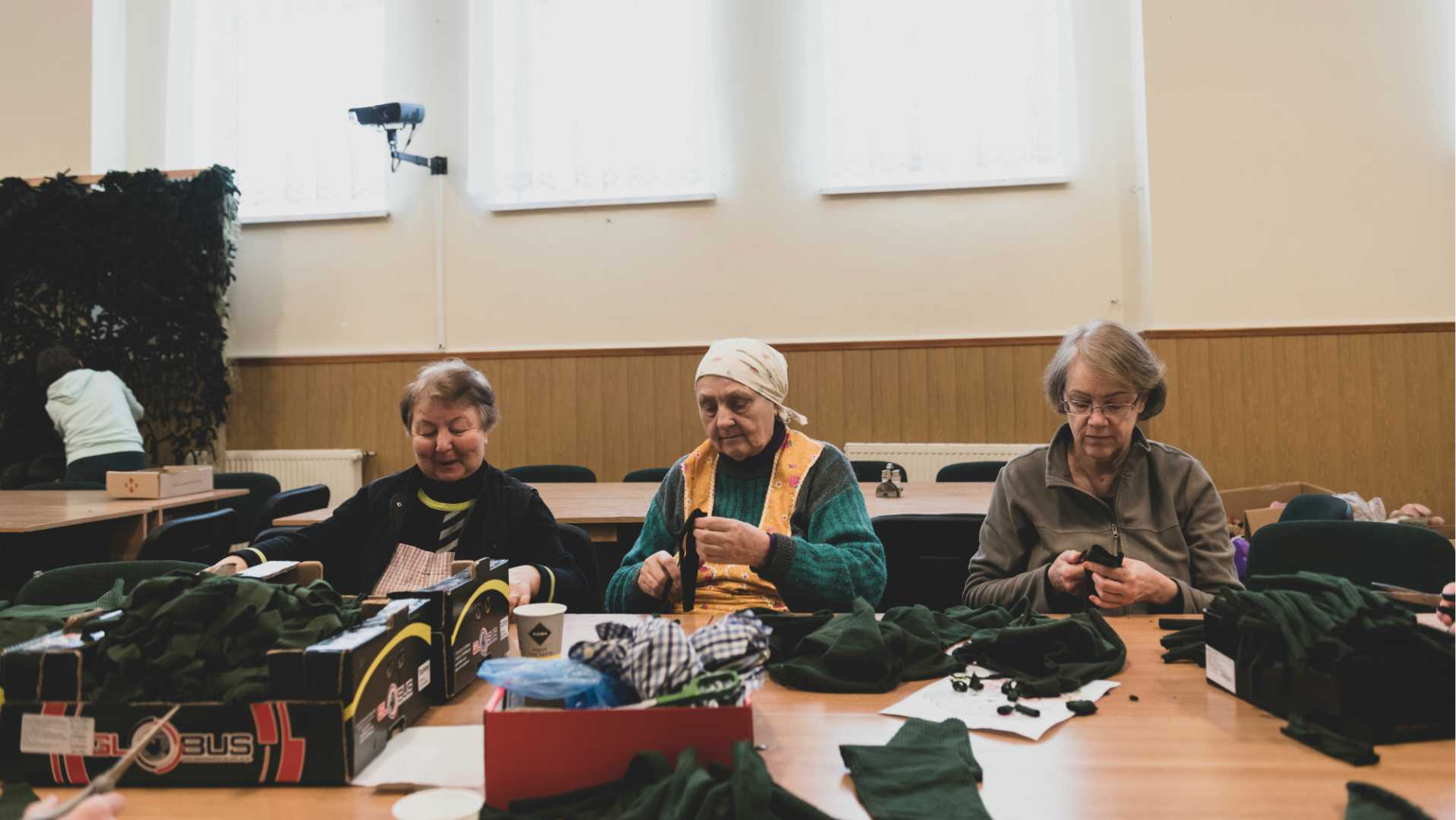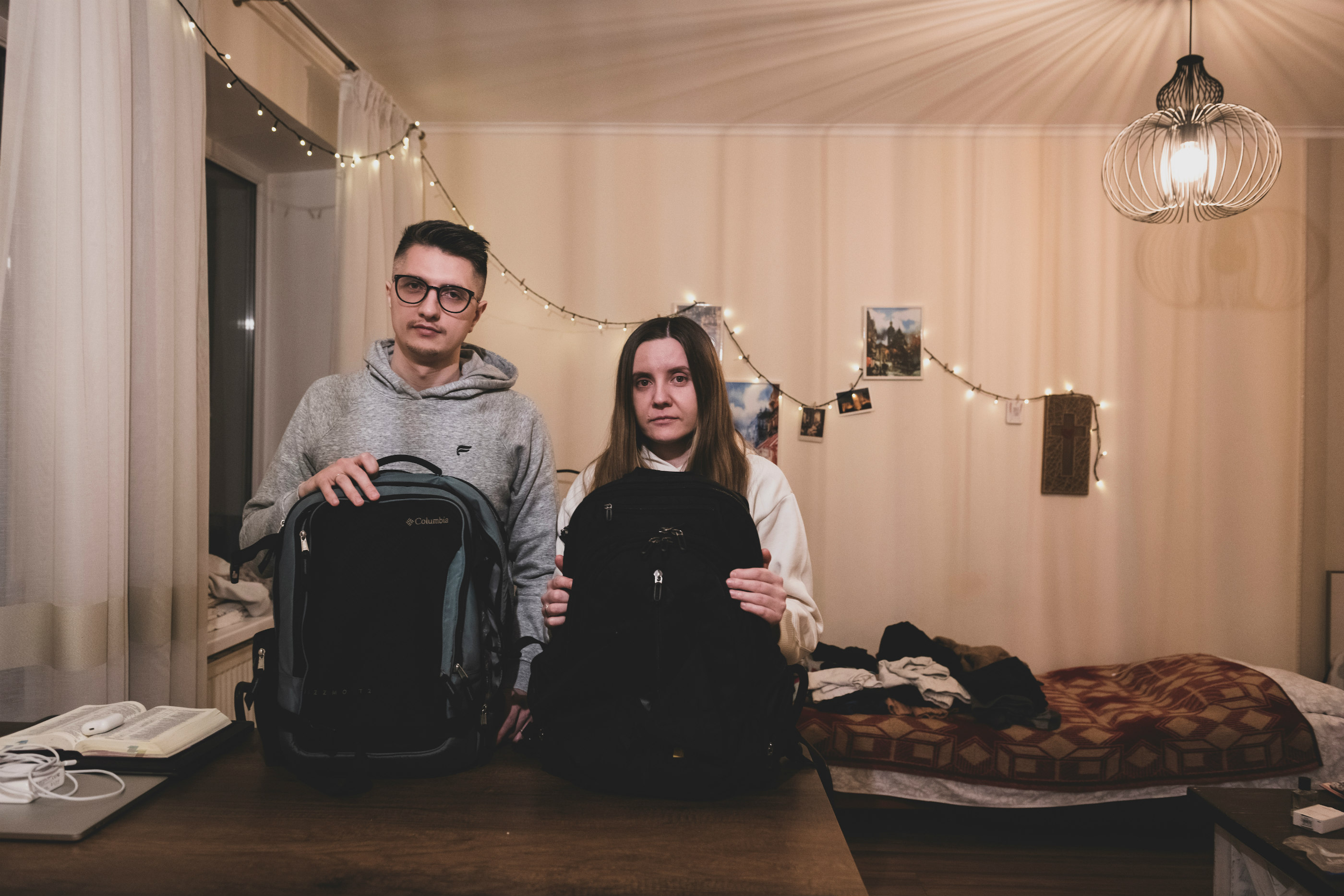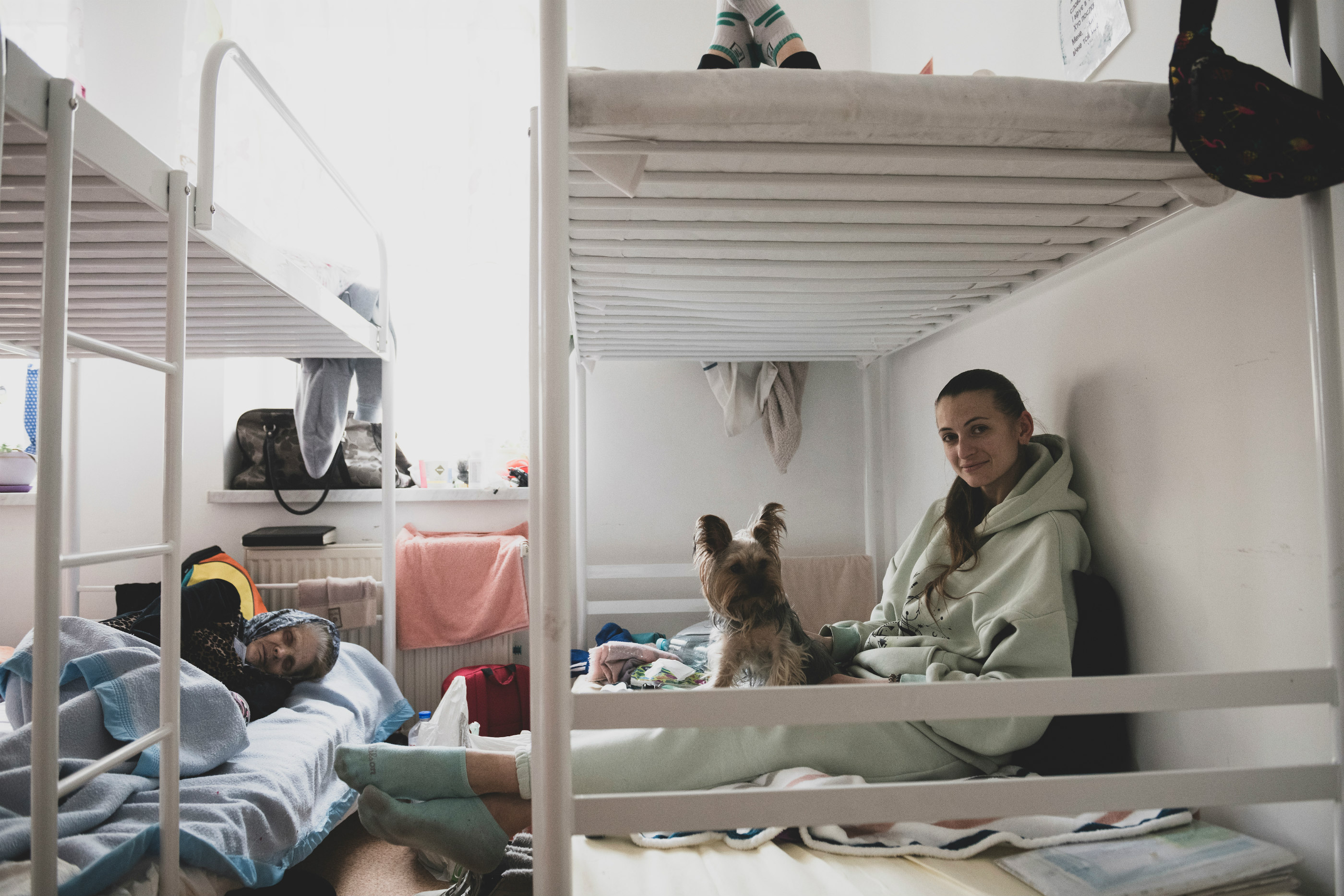First they had to get a car.
As the threat of a Russian invasion grew on the horizon, some shrugged it off, thinking it unlikely. But Vika Aharkova, who ministered alongside her husband Vasyl among the 20,000 international students in Kharkiv, near the Russian border, “kind of knew it was going to happen,” she said.
It’s easy to delay when crisis is coming. It’s easy to think of the many plausible reasons the worst won’t happen. They were still praying for peace. But they also knew they needed to be prepared.
They needed a car.
“If we know there is going to be a war, we need to buy a vehicle,” Vika said. “So we can evacuate fast.”
Vika and Vasyl appealed to supporters for funds to buy a car, and two days later, funds in hand, Vasyl traveled to Lviv, in western Ukraine, to purchase the vehicle. He immediately drove back to Kharkiv—a 14-hour journey.
The invasion started eight days later, at 5 a.m. on February 24. At 5:30, Vika and Vasyl were in the car, each carrying just a single backpack.
By the time they left the city, they had five more people, with five more backpacks: Vasyl’s sister, a couple from their church, an elder’s teenage daughter, and a student from the medical university.
No one took any extra luggage, but they did make room for a cat.
They would drive nonstop to Lviv—this time a 36-hour journey. Many people from all over the country have fled to Lviv now. In the West, near the Polish border, it’s more secure.
Here many churches, and many evangelicals like the Aharkovs, have turned to face the crisis head-on.
 Joel Carillet
Joel CarilletStep onto the grounds of the Central Baptist Church, for example, and the place is abuzz. Parked in front is a bus that will take evacuees to the Polish border. Inside are several rooms serving as temporary shelter for displaced people—those like Irina Malko, 38, and her dog, Zaya, who also fled from the city of Kharkiv.
Walk down the stairs a couple floors and you’ll find several women cutting up cloth to be used for camouflage netting for the military. Walk a little farther, to the church’s kitchen, and you’ll find women preparing meals—for the guests who are leaving in the bus out front and some who are staying longer.
The church is the new, temporary denominational headquarters, home to the staff of the Ukrainian Baptist Union. The union was located in Irpin, a suburb of Kyiv that quickly became a battlefield. Now it’s at Central Baptist Church in Lviv.
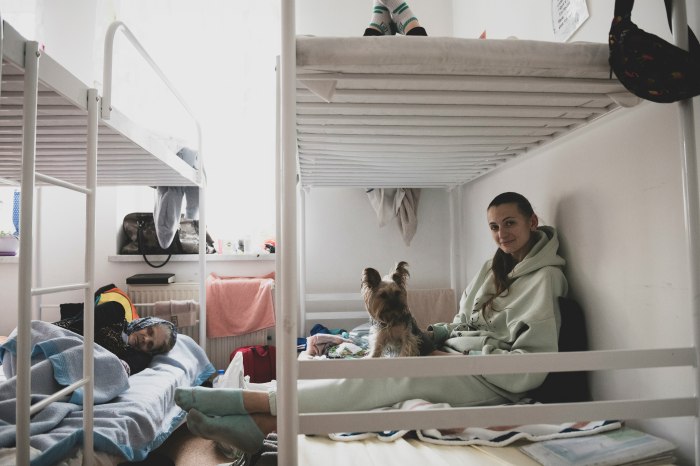 Joel Carillet
Joel CarilletIn one room of the church is a large map of Ukraine, multicolored thumbtacks indicating distribution points—churches of various denominations, mission organizations, and so forth—where humanitarian aid from Haus der Hoffnung, a German Christian organization, can be sent.
Down the hall, Igor Bandura, vice president of the union, is worried about what happens if the Russian military succeeds in taking Ukraine.
“The battle is huge, and it is not only about Ukraine,” he says. “If Ukraine would be taken, it is just a matter of time before Putin would move forward. Poland understands this. The Baltic states understand this. Romania understands this.”
He has stopped praying for peace. Now he prays for victory. He prays he and other Christians and the country as a whole will face the crisis head on. He prays that the Russian people will see the invasion for what it is.
“The majority of people just don’t want to know the truth,” he said in a sermon a few weeks ago. “They are easily attracted by state propaganda. Even our own Christian brothers and sisters are overwhelmed with fears.”
Inside this church, though, there doesn’t seem to be any fear. These are the faces of determination. Like so many people around Ukraine, the Baptists here, in this one church in Lviv, are stepping up to meet the challenges with a sense of solidarity and sacrifice. The church, like the rest of the country, is operating in a crucible, and a sense of unity is being forged—not in some abstract sense but in a blood, sweat, and tears sense.
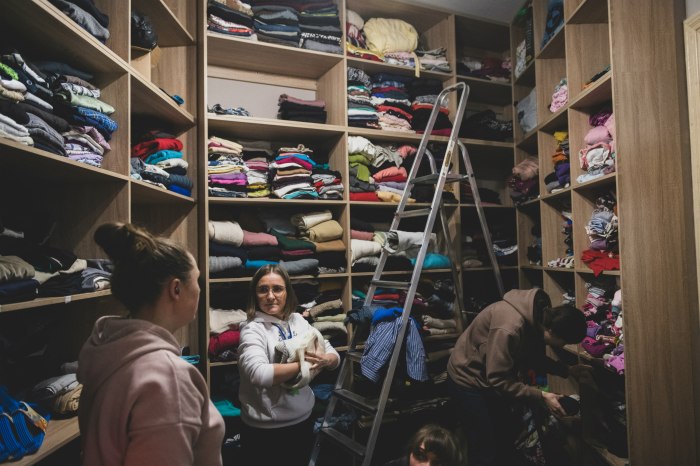 Joel Carillet
Joel CarilletThey are choosing, every day, to face the crisis and make the necessary decisions, from buying a car that can carry seven from Kharkiv to sorting donated clothes in a storage room in the church in Lviv.
What will they think about this time, when it’s all over?
“In the end, after the victory,” Bandura said, “we will look back and say, ‘God, it was painful, but it was so precious, so valuable.’”

